2012 Toyota Prius Plug-In Repair, Service & Tires
Get Started
Complete Auto Care for Your 2012 Toyota Prius Plug-In
-
TIRES FOR YOUR 2012 Toyota Prius Plug-In View Tire Info GET TIRE PRICING
-
REPAIR FOR YOUR 2012 Toyota Prius Plug-In View Repair Info SCHEDULE REPAIR
-
MAINTENANCE FOR YOUR 2012 Toyota Prius Plug-In View Maintenance Info SCHEDULE MAINTENANCE
-
OFFERS FOR YOUR 2012 Toyota Prius Plug-In Limited Time Tire Offers VIEW ALL COUPONS
2012 Toyota Prius Plug-In Tires
Recommended Tires | Tire Information
2012 Toyota Prius Plug-In Tires Sizes, Speed Ratings, and Inflation
Not sure about your 2012 Toyota Prius Plug-In tire size? Use the following chart to find information on tire size, speed rating, and inflation.
| Trim Level | Speed Rating | Inflation in PSI F/R | Tire Size |
|---|---|---|---|
| 2012 Toyota Prius Plug-In Base | S | 35 PSI/33 PSI | P195/65R15 |
|
2012 Toyota Prius Plug-In Base Speed Rating: S Inflation F/R: 35 PSI/33 PSI |
* Note: these models have different tire sizes depending on vehicle options.
Recommended Tires for Your 2012 Toyota Prius Plug-In
What tires are best for a 2012 Toyota Prius Plug-In? Check out the following tire brands and types.
 Ecopia EP422 Plus
Ecopia EP422 Plus
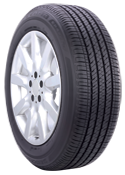
- Platinum Pact Limited Warranty
- All-Season
- Performance
 Turanza QUIETTRACK
Turanza QUIETTRACK
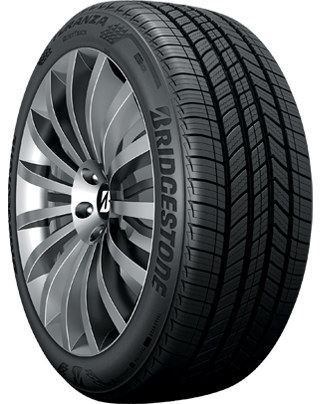
- No warranty
- All-Season
- Performance
 WEATHERPEAK
WEATHERPEAK
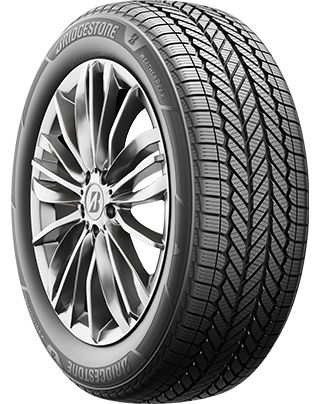
- Platinum Pact Limited Warranty
- All-Season
- Passenger Tires
 Blizzak WS90
Blizzak WS90
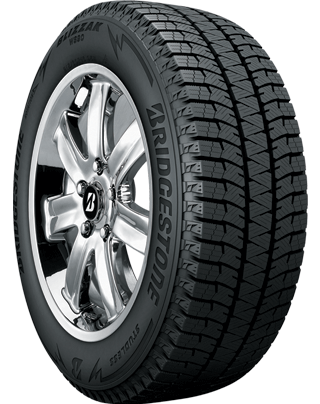
- No warranty
- Winter
- Winter
 Affinity Touring S4 FF
Affinity Touring S4 FF
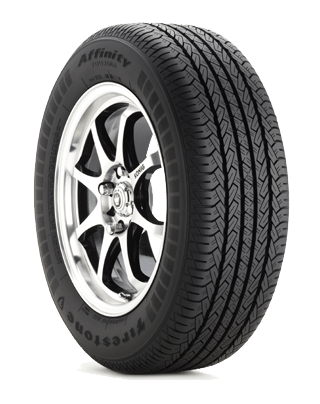
- Gold Pledge Limited Warranty
- All-Season
- Passenger Tires
 ALL SEASON
ALL SEASON

- No warranty
- All-Season
- Passenger Tires
 WEATHERGRIP
WEATHERGRIP
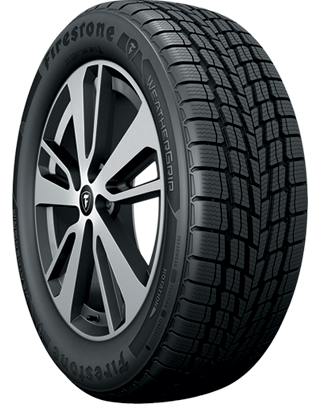
- No warranty
- All-Season
- Passenger Tires
 FT140
FT140
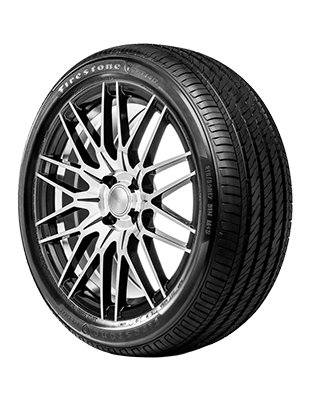
- No warranty
- All-Season
- Passenger Tires
 Winterforce 2
Winterforce 2
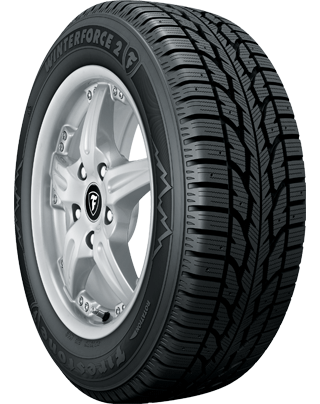
- No warranty
- Winter
- Winter

- No warranty
- All-Season
- Passenger Tires

- No warranty
- All-Season
- Passenger Tires
 Extensa A/S II
Extensa A/S II

- No warranty
- All-Season
- Passenger Tires
About 2012 Toyota Prius Plug-In Tires
Other than getting the proper tire size, there are a couple of other factors to consider when buying Toyota Prius Plug-In tires like which tire brands you like most and where you drive. Think about where you live (countryside vs. city vs. mountains) and the kind of unexpected weather you're likely to experience when evaluating your driving conditions. Drivers in states that fully experience all four seasons often buy two sets of tires: one for winter and one for summer. Other drivers buy one set of all-season tires instead. That way they don't have to return to the tire shop and their vehicle is always ready for sun, rain, and light snow!
Driving style is next on the list to think about when buying tires. If you're an avid off-roader who yearns to pioneer new paths, you have very different tire needs than a highway commuter who doesn't hit the hills very often. Browse Toyota Prius Plug-In tires online or come to your nearby Firestone Complete Auto Care for help selecting the tire that's right for you.
2012 Toyota Prius Plug-In Tire Installation & Rotation
Firestone Complete Auto Care installs more tires on more cars than most other companies. We're your one-stop shop for tire installation, rotation, and ongoing maintenance! Shop 2012 Toyota Prius Plug-In tires online and schedule an installation appointment.
Questions About 2012 Toyota Prius Plug-In Tires
-
Is Toyota tire inflation important? A small decrease in tire pressure can have a big impact on your driving. Maintaining proper tire pressure can help improve braking time, increase fuel economy, and boost tire lifespan.
-
What do the tire sidewall numbers mean for my Toyota Prius Plug-In? The numbers on your tire sidewall give you information about tire speed rating, traction, treadwear, tire size, and load carrying capacity. Chat with a tire technician to learn how to read the numbers on your Toyota tires!
-
Is there an easy way to check Toyota tire tread depth? Stay on top of your tire tread depth to help avoid a dangerous drive. You can check tread depth with a penny. Hold the penny so that Abraham Lincoln is facing you, then place your penny into a tread groove upside down. If you can see the top of Abe’s head, your tread is shallow and it might be time for new Toyota Prius Plug-In tires. Grab a penny. Hold the so that Abe Lincon's head is facing you and his hair is pointing toward the ground. Then, place the penny into a tread groove. If you can see the top of Abe’s head, your tread is shallow and it might be time for new Toyota Prius Plug-In tires.
Repair Services for Your 2012 Toyota Prius Plug-In
When to repair, when to replace? Click on a repair below to learn more about Toyota Prius Plug-In repairs at Firestone Complete Auto Care.
About 2012 Toyota Prius Plug-In Repairs
Car repairs: for many drivers, that phrase is a dreadful one. We’re here to change that, though. At Firestone Complete Auto Care, we want to make car repair painless and hassle-free. When you come to us for 2012 Toyota Prius Plug-In repair services, rest easy knowing that your Prius Plug-In is in capable hands. Before we begin any repair work, we’ll diagnose any issues and answer your questions about potential repair options. If a repair isn't necessary, we won't recommend it.
What Will Toyota Prius Plug-In Repairs Cost?
The cost to repair your 2012 Toyota Prius Plug-In depends on what kind of repair you need, costs of replacement parts or repair supplies, the amount of labor necessary to get the job done, and where you live. No matter what state you’re in, be sure to look through our offers and online coupons for repairs.
A few different aspects can influence repair costs for your 2012 Toyota Prius Plug-In, like
2012 Toyota Prius Plug-In Auto Repair Questions
-
Can scheduled maintenance help me avoid repairs? Don’t neglect scheduled maintenance. Sure, you could skip out on a few recommended maintenance services, but you may pay the price later. Bring your vehicle to Firestone Complete Auto Care at recommended service intervals to address minor issues before they get out of hand and keep your car running newer, longer.
-
Should I bring my Toyota in even if I can't pinpoint the problem? No, we’re not talking about finding the best jams on the radio! You know your car best, and you’re the first person who will notice if something doesn’t feel right (like new smells, sights, or sounds coming from your car). If you sense that something is 'off,' stop in for a Courtesy Check to have these symptoms checked out ASAP. Early action could help you prevent Toyota Prius Plug-In repairs.
-
Are the repairs you recommend for my Toyota actually needed? We won’t recommend a service or repair for your 2012 Toyota Prius Plug-In unless we think it’s necessary to keep you safe. Want to know more about a specific recommended repair? Ask! We’re here to help.
Brake Repair for Your 2012 Toyota Prius Plug-In
Your Toyota Prius Plug-In may be powered by a strong engine. But if you can’t brake, it might as well be scrap metal. Don't wait if you're experiencing brake squeaks or a loss of braking power. Safe driving is difficult when your brakes are anything but their best. What's more, waiting for things to figure themselves out can result in more damage to your brakes and your wallet. Visit Firestone Complete Auto Care for the right brake repair for your 2012 Toyota Prius Plug-In. We offer many affordable brake repairs like brake pad/shoe replacement, brake rotor/drum resurfacing, brake fluid exchange, and brake caliper and wheel cylinder service.
Toyota Prius Plug-In Brakes Frequently Asked Questions
-
Why is my Prius Plug-In shaking as I brake? Feeling shaking or vibrating in your Prius Plug-In as you brake might indicate a few different problems, including worn brake pads or rotors, loose suspension components, damaged brake calipers, or warped rotors. Book an appointment for a free brake inspection as soon as you notice a problem with your brakes.
-
How long should my Prius Plug-In brake pads last? You can usually get around 30,000 to 40,000 miles out of your brake pads, but how and where you drive your Prius Plug-In can affect this. Hauling large loads or riding your brakes can shorten their lifespan, while smoothly braking and mostly sticking to highways can help your brake pads last longer.
-
Is it bad if my Prius Plug-In is leaking brake fluid when off? Because your Prius Plug-In brake system is a closed hydraulic system, it should not leak brake fluid. However, if components in your brake system have worn out or been damaged, it might cause brake fluid to leak.
Repairing Your Toyota Prius Plug-In Drivetrain
Drivetrains for front, rear, and all-wheel-drive and 4WD vehicles are quite different, so you don't want to go to just anyone for drivetrain repair. You want to go to Firestone Complete Auto Care. We can take care of most 2012 Toyota Prius Plug-In drivetrain components Your Toyota could be crying out for driveshaft repair if you notice resistance when turning, heavy vibrations in your floorboards, clunks when shifting, or vibration as your vehicle accelerates.
2012 Toyota Prius Plug-In Drivetrain Questions
-
What are signs my Toyota drivetrain is damaged? Hear noises toward the back of your Toyota Prius Plug-In? See fluid leaking? Having issues turning? These could all be signs of drivetrain damage you don't want to ignore. Take action quickly to catch repairs or replacements before something more severe happens.
-
Why is the malfunction indicator light (MIL) on in my Prius Plug-In? Engine problems, transmission problems, faulty sensors, electrical issues, misfire issues, and connector problems could all cause your Prius Plug-In’s malfunction warning light, or better known as the check engine light, to illuminate.
-
Is a drivetrain malfunction in my Prius Plug-In serious? If your Prius Plug-In has a drivetrain malfunction, don't wait. Get it checked out by a professional mechanic. Identifying the underlying cause and performing the appropriate repairs right away can help prevent further damage and avoid unsafe driving conditions.
2012 Toyota Prius Plug-In Wheel Alignment
Alignment services involve precise adjustments to your Toyota Prius Plug-In’s suspension system, which serves to attach your wheels to your vehicle. When your car has an alignment service, the individual angles of your tires are adjusted so that they come into contact with the road in just the right way — the way Toyota intended them to. Before we adjust the alignment of your 2012 Toyota Prius Plug-In, we’ll start by checking the current alignment angles. If needed, we'll adjust your wheel alignment angles to match Toyota recommendations.
Questions About Toyota Prius Plug-In Alignment
-
Are there road conditions that can hurt my Toyota Prius Plug-In alignment? Potholes and uneven roads can knock your car out of alignment, so stay aware of the road ahead and adjust your speed (or avoid these obstacles whenever it’s safely possible).
-
How frequently should you get a wheel alignment for your Prius Plug-In? Check your Prius Plug-In owner's manual for Toyota's recommended interval. It's generally a good idea to check your alignment every 6,000 miles or 6 months, depending on which comes first.
-
Do you need to get your Prius Plug-In wheels aligned when you get new tires? It’s likely not a requirement to get an alignment when you install new tires on your Prius Plug-In, but it's a smart idea to do so anyway. An alignment can help ensure even tire wear, smooth handling, and better fuel efficiency.
2012 Toyota Prius Plug-In Engine Repair
If your 2012 Prius Plug-In engine needs repairs, our expert techs will let you know what needs to be done and why before they get started. We make recommendations, but you make the final decision. If a repair isn’t urgent right now, we’ll let you know. If it's necessary for your safety, we'll make sure you understand that, too. We want to provide you with the information you need to make an informed engine repair decision. By choosing Firestone Complete Auto Care for Prius Plug-In engine repairs and you can feel confident knowing that we use Toyota-approved parts and components like the cambelt, motor oil seal, fuses, or other parts.
2012 Toyota Prius Plug-In Engine Q&A
-
Why does my Prius Plug-In’s check engine light come on when I start it? It's okay if your check engine light comes on when you first start your vehicle. This is a sign that your vehicle is testing its circuits. The light should go off shortly. Bring your vehicle in if it doesn't.
-
Why does my Toyota engine sound different? Unusual noises can signal a problem with your Toyota Prius Plug-In engine. Tapping or knocking could mean you're low on oil. Whistling could mean a belt is misaligned or there's an intake leak. Squealing can indicate a loose fan belt, and grinding might be coming from the brakes, not the engine.
-
What could damage a Toyota engine? Certain driving habits can damage your engine and should be avoided. These habits include 'running on fumes,' revving the engine while still in Park, or pushing 'the pedal to the metal' before the engine has warmed up. Help sustain your engine’s performance and efficiency by staying miles away from these bad driving practices.
Tire Repair for Your 2012 Toyota Prius Plug-In
Firestone Complete Auto Care is here for you when your 2012 Toyota Prius Plug-In needs flat tire repair or inspection. Our tire technicians can determine whether it's safe to plug and patch the tire, or whether it needs to be replaced. To start, we’ll consider the location of tire damage, the type of issue, the size and scope of the damage, and the amount of wear on your tires.
If we determine that your 2012 Toyota Prius Plug-In tire can be safely repaired, the repair process is actually fairly simple: (1) Remove the tire from the wheel for inspection and repair, (2) fill in the area that’s been punctured to prevent damage from moisture, and (3) secure and seal the inner tire liner to ensure the tire is airtight.
Toyota Prius Plug-In Tire Repair Questions
-
What happens if I drive my Toyota on a flat tire? Driving on a flat or underinflated tire can put extra stress on your wheels and alignment. While it’s sometimes necessary to drive a short distance on a flat tire to get to a safe place, don’t take any other trips in your Prius Plug-In until you can have the flat tire repaired or replaced.
-
Is temporary sealant bad for my Toyota's tires? A temporary sealant may be able to help you get to a repair location safely. But temporary or emergency sealants could possibly damage TPMS sensors, and in some cases may even void the warranty on your Bridgestone or Firestone tires. If your tire needs extensive repair, sealant can add time and labor costs to the process.
-
Why do the tires on my Prius Plug-In keep losing air? Possible reasons for your Prius Plug-In tires continuously losing air include a leaking valve steam, wheel damage, and a puncture or hole in the rubber.
2012 Toyota Prius Plug-In Maintenance
You want your Toyota Prius Plug-In to last as long as possible. If you put in the effort to keep up with proper maintenance, you could hit 200,000 miles (or beyond!) in your Prius Plug-In.
2012 Toyota Prius Plug-In Maintenance Schedule
What is the manufacturer recommended maintenance schedule for a 2012 Toyota Prius Plug-In? Find maintenance info for your vehicle.
About 2012 Toyota Prius Plug-In Scheduled Maintenance
There's no need to guess when it's time to get Prius Plug-In maintenance, and no need to wait until something goes wrong. Rely on the recommended maintenance schedule that’s been created just for your 2012 Toyota Prius Plug-In! Toyota knows your vehicle inside and out (they made it, after all!), so they’ve designed this schedule with your car’s unique needs in mind. Driving conditions, climate variations, and other variables can affect which scheduled maintenance services you’ll need; however, there’s a good chance that your vehicle’s recommended maintenance services will include fluid exchanges, filter changes, new brake pads, oil changes, and tire rotations. Keeping up with routine service appointments is a great way to keep your Prius Plug-In running for longer, decrease your risk of dangerous malfunctions on the road, and maybe even save you the headache of dealing with common 2012 Toyota Prius Plug-In problems in the future.
Overview of Essential Toyota Prius Plug-In Maintenance Needs
Bring your 2012 Toyota Prius Plug-In to Firestone Complete Auto Care for factory-recommended maintenance services and our technicians will jump right in with a Courtesy Check. A Courtesy Check helps "set the stage" for your service and catch any small problems before they turn into big repairs. Each Courtesy Check includes a free battery test and an inspection of your Prius Plug-In's windshield wiper blades, head and tail lights, filters, fluid levels, tires, and alignment.
Firestone Complete Auto Care is your spot for 2012 Toyota Prius Plug-In maintenance. So visit us regularly, or visit us urgently. Many locations are open on weekends and in the evening.
Questions About 2012 Toyota Prius Plug-In Maintenance
-
What should I do after hitting a pothole in my Toyota Prius Plug-In? You know your Toyota Prius Plug-In better than anyone else, so you’ll know if something doesn’t feel right while driving. Have your alignment checked (and adjusted if necessary) as soon as you notice a pulling steering wheel to prevent suspension damage or uneven tire wear.
-
When should I use high mileage oil in my Toyota Prius Plug-In? If your Toyota Prius Plug-In has ticked past 75,000 miles, consider switching to high mileage oil at your next oil change to give your engine what it needs to go another 75,000 (or more!). High mileage oil: make it a high priority!
-
Can I ignore dashboard lights on my Toyota? Don't ignore dashboard warning lights! Bring your Toyota Prius Plug-In in for a diagnostic code scan as soon as a dashboard warning light flashes on, whether it's your check engine or battery light. Dashboard lights alert you to trouble under the hood.
The Right Battery Size for a 2012 Toyota Prius Plug-In
Not sure what battery to get for your Toyota Prius Plug-In?
| Battery | Engine | Warranty | Cold Cranking Amps | |
|---|---|---|---|---|
| L4/1.8L | Replacement months | Performance months |
2012 Toyota Prius Plug-In Batteries
Generally, car batteries last from three to five years. You want to replace your 2012 Toyota Prius Plug-In battery before it fails and leaves you stranded. Watch for signs that your current battery is getting too old or too weak. A lagging starter, an illuminated battery or check engine light, swollen battery case, corroded battery posts, or dim headlights can all signal that your battery is on its last leg.
Plus, at Firestone Complete Auto Care, we’ll test your battery for free. Drop in for a free battery check and, if needed, a replacement battery for your 2012 Toyota Prius Plug-In. Car batteries are one of our many specialties! Our expert technicians understand Toyota service recommendations for Prius Plug-In car batteries’ reserve capacities and cold cranking amps. Get help identifying the type and size of battery that matches your vehicle, and schedule a weekday or weekend battery replacement service for your car.
Commonly Asked Toyota Prius Plug-In Battery Questions
-
Why won't my Toyota Prius Plug-In battery stay charged? A battery is in its final hour when it will no longer hold a charge. The battery may be too old. Or, you may have been leaving your car doors ajar and the cabin light at night. Stop by for a complimentary battery check at your favorite Firestone Complete Auto Care and get a handle on your car battery’s health.
-
How long can I expect my car battery to last? The typical 12-volt car battery may last three to five years, depending on the type of battery, the driving conditions, and how well the battery is maintained.
-
What is the white, crusty substance accumulating on my Prius Plug-In’s battery post? The white, crusty stuff that can accumulate around Prius Plug-In car battery terminals is called corrosion. It is caused by a chemical reaction between the battery acid and the air, which creates a white, powdery substance that can build up on the terminals over time. Corrosion can interfere with the flow of electricity between the battery post and the car's electrical system, sometimes leading to poor electrical performance, difficulty starting, and even premature battery failure.
Oil Changes for 2012 Toyota Prius Plug-In
Toyota recommends having your 2012 Toyota Prius Plug-In’s motor oil changed at regular intervals. Outside of Toyota-recommended oil change intervals, your Prius Plug-In may need an oil change if your check engine light is on, you hear engine knocking, smell oil inside the car, or notice excess vehicle exhaust. You may also need an oil change more frequently than Toyota recommends if you haul heavy loads, drive in dusty terrain, go off-roading a lot, or go at low speeds on long distance trips.
Your local Firestone Complete Auto Care has the right 2012 Toyota Prius Plug-In motor oil: either synthetic or conventional. Check your owner's manual and talk with a technician to select the right Toyota Prius Plug-In oil, whether it's Quaker State® Advanced Durability™ conventional oil, Pennzoil® High Mileage Vehicle® motor oil, Pennzoil Platinum® Full Synthetic motor oil with PurePlus™ Technology, or Shell Rotella® heavy-duty engine oil. During your oil change service, one of our techs will change your Prius Plug-In’s oil, replace and recycle the old oil and filter, check all of your other filters, refill vital car fluids, and perform a courtesy inspection on your entire vehicle. Get professional engine care by making an oil change appointment for your Prius Plug-In today.
Oil Change Q&A for Your 2012 Toyota Prius Plug-In
-
What does it mean if my Toyota Prius Plug-In oil light comes on? Your Toyota Prius Plug-In oil change reminder light may come on if you're overdue for an oil change. The oil pressure light will typically come on if the oil level in the engine is too low, the oil pump is failing, you have a clogged oil filter, or there's a faulty oil pressure sensor.
-
How hard is it to change Toyota Prius Plug-In oil at home? Changing your own oil isn't as convenient as you might think. It requires special tools and old oil must be disposed of properly. Having your oil professionally changed reduces the chances of something going wrong with the oil change, but also with your vehicle down the road.
-
Why is my Toyota Prius Plug-In spewing blue or gray exhaust smoke? You could have an oil leak and have a case of burning oil. Looks like it’s time for a professional to take a look. The leak could be the result of worn valve seals, fried piston rings, or old cylinder walls.
Engine Tune-Up Service for Your 2012 Toyota Prius Plug-In
Regular engine tune-ups can optimize your Prius Plug-In’s power on the road. Your local Firestone Complete Auto Care offers a range of engine tune-up services for your 2012 Toyota Prius Plug-In. The first is the standard Firestone Tune-Up. It includes a complete visual inspection of engine components, installation of new spark plugs, and a lifetime warranty on parts*. The second service focuses on your Prius Plug-In's filters, specifically replacing the air filter and fuel filter. Yet another service is a fuel system cleaning process, which involves removing varnish, dirt, and carbon deposits that have built up inside the fuel injectors, throttle body, and throttle plate in your Prius Plug-In. This goes a long way in boosting your fuel system’s overall performance. Keep in mind that your Prius Plug-In's mileage and maintenance history can uniquely impact its tune-up needs. Talk to a technician about your driving style, mileage, and service history to learn more about your vehicle's specific needs.
*Ask a Firestone Complete Auto Care teammate about full terms and conditions for warranties.
2012 Toyota Prius Plug-In Engine Tune-Up Q&A
-
Will it hurt my Toyota Prius Plug-In to drive with old spark plugs? Replace spark plugs on time or about every 30,000 miles or so. Spark plugs are small but mighty. The spark of electricity that the plug emits across a small gap creates the ignition for the combustion needed to start your car. Without that spark, your car won't start.
-
What do I do if I see a pool of liquid under my Toyota Prius Plug-In? Puddles could indicate an oil leak, coolant leak, or brake fluid leak– all of which can critically hurt your engine. Have your engine inspected as soon as you spot a pool of liquid in your usual parking spot.
-
How often do Toyota Prius Plug-In fuel injectors need to be cleaned? Factors like fuel type and driving conditions can affect how frequently you need to clean your Prius Plug-In fuel injectors. Some manufacturers recommend a fuel system cleaning as part of routine maintenance, or as needed if your vehicle is showing signs of poor fuel system performance.
2012 Prius Plug-In Toyota Steering & Suspension Services
When you first bought your 2012 Toyota Prius Plug-In, you and your passengers probably enjoyed a ride that was smooth and balanced. Lately, though, your ride’s been feeling a little bumpy. Maybe your Prius Plug-In bounces, pulls to one side, or makes an unusual noise when going over a speed bump. The first sign of problems is a good time to bring your 2012 Toyota Prius Plug-In in for steering and suspension services. We’ll get to the root of the issue and, if your car needs steering and suspension repairs, we’ll explain what your car needs and how much it’ll cost to get it done. We won't begin any work without your permission.
2012 Toyota Prius Plug-In Steering & Suspension Questions
-
Why is my Toyota Prius Plug-In bouncing so much? If your shocks or struts are in bad shape, they can’t dampen road bumps like they should. This can cause your Prius Plug-In to bounce more than usual.
-
Why does my Prius Plug-In's nose dive down when I hit the brakes? The forward momentum and weight transfer to the front wheels during braking can cause your Prius Plug-In's front end to dip forward. A damaged or faulty suspension system may fail to distribute the weight and force effectively, causing the front end to dip even more.
-
Does tire pressure and tread depth impact my Toyota's suspension? Maintaining your tires can help reduce strain on the suspension, nd also let you know when it's time to replace your tires. A faltering steering and suspension system could lead to uneven tire wear.
Convenient & Local 2012 Toyota Prius Plug-In A/C Service
Our trained technicians will do what they can to solve your 2012 Toyota Prius Plug-In A/C problems. During an A/C performance check, we'll determine the condition of your 2012 Toyota Prius Plug-In A/C system to determine whether repair work is needed. We’ll test overall system performance, check for any leaks, and measure the system pressure.
Let's say we repair your 2012 Toyota Prius Plug-In A/C system. We will also perform an A/C evacuation and recharge. To start this process, a technician will flush out the old refrigerant from your vehicle’s A/C system. Then, they’ll perform an evacuation (also known as a discharge) on the entire system per Toyota guidelines. The A/C system is recharged with new refrigerant.
Frequently Asked Questions for 2012 Toyota Prius Plug-In A/C Systems
-
Why is my Prius Plug-In A/C blowing hot air? An A/C blowing hot air has several possible root causes. There could be an issue with your compressor clutch, a blown fuse, a leak, or a clog in the expansion valve.
-
What can cause an A/C system leak? Over the years, the rubber seals and gaskets in your Prius Plug-In’s A/C system naturally degrade. Moisture can get into the system and cause a malfunction, or parts can simply wear out so that your system no longer seals properly.
-
What is causing my Prius Plug-In’s A/C to only work when the car is in motion? A problem with one or more of your air conditioning or electrical system components could cause the A/C to only work when your Prius Plug-In is moving. You may be low on refrigerant, or the cooling fan could be faulty.
2012 Toyota Prius Plug-In Transmission Service & Repairs
The transmission delivers power from the motor to your wheels so that you can drive at your desired speed. Because your transmission is responsible for converting the right amount of power into the right amount of speed, a small transmission issue can put a big dent in your Prius Plug-In’s performance. 2012 Toyota Prius Plug-In transmission issues could include shifting delays, grinding or jumping during acceleration, the car shaking on the road, or whistling noises or a burning smell coming from beneath the hood. If you ignore Toyota Prius Plug-In transmission issues you might notice your fuel economy decrease or find that your Prius Plug-In isn’t working at all. Our expert techs are familiar with 2012 Prius Plug-In services and perform them according to Toyota-recommended specifications. As soon as you suspect something’s wrong with your Prius Plug-In’s transmission, book an appointment at your local Firestone Complete Auto Care to help keep your engine running at peak performance.
2012 Toyota Prius Plug-In Transmission Questions & Answers
-
How often does my Prius Plug-In transmission fluid need to be checked? Caring for your Toyota Prius Plug-In’s transmission fluid is a great way to help it perform. About every 30,000 to 60,000 miles is a good timeframe for having your transmission fluid inspected and perhaps changed. Service intervals can vary depending on how you use your Toyota, so check with your technician first. Luckily, leaks and low fluid levels are easy to spot and inexpensive to fix.
-
Is it possible for transmission fluid to leak from my Toyota Prius Plug-In? Over time, transmission fluid can leak from your Toyota Prius Plug-In, potentially causing transmission problems. A transmission fluid leak may be caused by a damaged transmission pan, faulty transmission cooler lines, worn-out seals, a cracked transmission housing, or an overfilled transmission.
-
Can I still drive my Toyota Prius Plug-In if it has a transmission fluid leak? You should avoid driving with a transmission fluid leak. Your transmission system relies on transmission fluid to operate properly, and a leak may decrease performance, cause your Prius Plug-In to overheat, or even lead to transmission failure.
Get a 2012 Toyota Prius Plug-In Vehicle Inspection
At Firestone Complete Auto Care, we perform a multi-point Courtesy Check during any vehicle service. The technician will begin by testing your Toyota Prius Plug-In's battery to see how much charge it has left – and determine if it may fail in the near future. We’ll follow the battery inspection with a visual check of your Toyota Prius Plug-In’s filters, lights, wiper blades, hoses, alignment, tires, fluid levels, and belts.
While every visit to your local Firestone Complete Auto Care includes a Courtesy Check, we can also dig deeper and perform a Complete Vehicle Inspection on your 2012 Toyota Prius Plug-In if you prefer. A Complete Vehicle Inspection includes everything in a Courtesy Check, plus an examination (by hand!) of your exhaust system, steering and suspension, and brakes. The goal of this type of inspection is to unearth significant issues that might require preventative maintenance.
In some cities or states, you may be able to take care of your state inspection or safety test at your local Firestone Complete Auto Care. These inspections are governed by state automotive laws and may vary in different locations.
2012 Toyota Prius Plug-In Vehicle Inspection Q and A
-
How do I know if my Toyota Prius Plug-In needs a check-up? You drive your car, day in and day out, so you know it best. If you notice unusual engine noises or you can’t shake the feeling that something is 'off,' start with a Courtesy Check to stay ahead of potential issues.
-
Help! My 2012 Toyota Prius Plug-In failed the state inspection test. Can you get it to pass? Did your vehicle fail a recent state inspection test? We can help. Come in for a checkup and we’ll diagnose the issue.
-
What's the ideal timing for a full vehicle inspection on my Toyota Prius Plug-In? You should bring your Toyota Prius Plug-In in for a full vehicle inspection if something weird happens and you can’t find the problem. A new dashboard light might come on, you may hear strange sounds under the hood, or your steering might feel off. A complete inspection is also a great idea before a road trip for added peace of mind.
2012 Toyota Prius Plug-In Radiator Repair & Service
Regular, proactive service on the radiator in your 2012 Toyota Prius Plug-In is essential for long-term engine health. Toyota recommends that you replace coolant (also called antifreeze) at certain intervals, but you can also take note of any signs your radiator is going bad. You could be on the verge of a radiator-induced engine breakdown if you see coolant leaks under your car, high engine temperatures, or a dashboard light that indicates low coolant.
If you bring your vehicle to Firestone Complete Auto Care, we start with a comprehensive inspection of your Toyota Prius Plug-In’s cooling system. We’ll do a machine-powered coolant exchange on the system, and then we’ll top off or replace the fluids that were removed (like chemicals, lubricants, and sealants). Lastly, we’ll perform a pressure check to look for leaks. When it comes to radiator service and repair, your 2012 Toyota Prius Plug-In is in good hands at Firestone Complete Auto Care.
2012 Toyota Prius Plug-In Radiator Q&A
-
What does the coolant light on my Toyota dashboard mean? f the coolant light illuminates on your dashboard, your engine could be overheating. Pull over to a safe area and wait for the engine to cool down. Then, head to your nearest Firestone Complete Auto Care for a coolant system check.
-
My Prius Plug-In overheated! What can cause that? If your Toyota Prius Plug-In engine overheats, it could be because of a clogged radiator, a damaged thermostat, a faulty cooling fan, a malfunctioning water pump, or low coolant levels.
-
What can cause a Prius Plug-In radiator to make boiling or rumbling sounds? Your Prius Plug-In’s cooling system could contain air pockets or your radiator might be clogged. Another possibility is a faulty radiator cap, which is an easy fix!